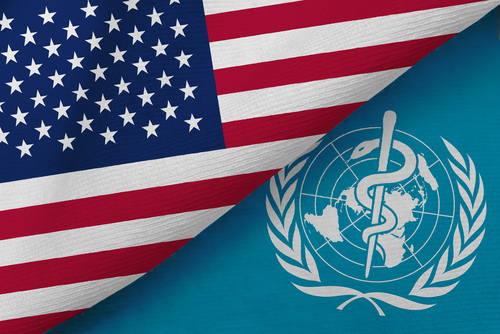
In recent discussions within the health and economic forums, a term has emerged that is stirring both concern and skepticism among the public: “Disease X.” This enigmatic label represents a hypothetical future pathogen, one that could potentially cause a global pandemic with catastrophic consequences. The World Health Organization (WHO) has issued warnings that such a disease could be far more lethal than previous outbreaks, sparking a sense of urgency to prepare for the unknown.
The concept of “Disease X” has been met with a mixture of fear and suspicion. Critics argue that the pharmaceutical industry, often referred to as Big Pharma, stands to gain significantly from the fear and preparation surrounding potential pandemics. They point to the rapid development and deployment of vaccines during past crises as evidence of an industry eager to capitalize on global health emergencies. The readiness of mRNA vaccine technology, waiting for the next genetic sequence to input, is seen by some as a sign of an industry poised for profit rather than purely focused on prevention.
Breaking: See Alex Jones’ Censored #DiseaseX Prediction pic.twitter.com/KiPVcd8QPL
— Alex Jones (@RealAlexJones) January 16, 2024
At the heart of these discussions are recent meetings at the World Economic Forum in Davos, where panels have been devoted to exploring novel approaches to healthcare system preparedness. Notably, these sessions include significant representation from the pharmaceutical industry, raising questions about the motivations behind pandemic planning. Is it a genuine effort to safeguard public health, or is there an underlying agenda driven by financial interests?
Amidst this backdrop, prominent medical professionals have voiced their concerns and recommendations. Dr. Peter McCullough, a leading cardiologist, has emphasized the likelihood of “Disease X” originating from a zoonotic RNA virus, suggesting that its emergence could be facilitated by certain environmental risk factors. His call for preparedness is echoed by other experts who stress the importance of being equipped for the next health crisis.
Disease X is coming and we can’t stop it
So what can we do?
DO NOT COMPLY
Do not comply to save your job
Do not comply to keep friends
Do not comply because of family
Do not comply to not make waves
Do not comply no matter whatTo comply is to be complicit#DoNotComply pic.twitter.com/iMA0SLiXdO
— CaliRN619 🚑🩺🚑 (@CaliRN619) January 16, 2024
One response to these warnings has been the creation of medical emergency kits by entities like The Wellness Company. These kits, which include a range of critical medications and a guidebook for safe usage, are presented as a necessary measure for individuals to take control of their health in uncertain times. The kits are available by prescription only, adding a layer of professional oversight to their distribution.
Customer testimonials reflect a growing sentiment among the populace: a desire for peace of mind in the face of potential emergencies. The positive reception of these medical kits suggests that many are taking the threat of “Disease X” seriously, choosing to be proactive in their health management.
However, the conversation around “Disease X” is not without its detractors. Some view the promotion of medical emergency kits and the narrative of an impending pandemic as fear-mongering tactics designed to manipulate public behavior. They caution against blindly accepting the narratives propagated by those who might benefit financially from widespread panic.
As the debate continues, one thing remains clear: the concept of “Disease X” has ignited a complex dialogue about the intersection of health, economics, and ethics. Whether it serves as a prophetic warning to spur global preparedness or a profit-driven prophecy will be determined by the actions and intentions of all stakeholders involved.









